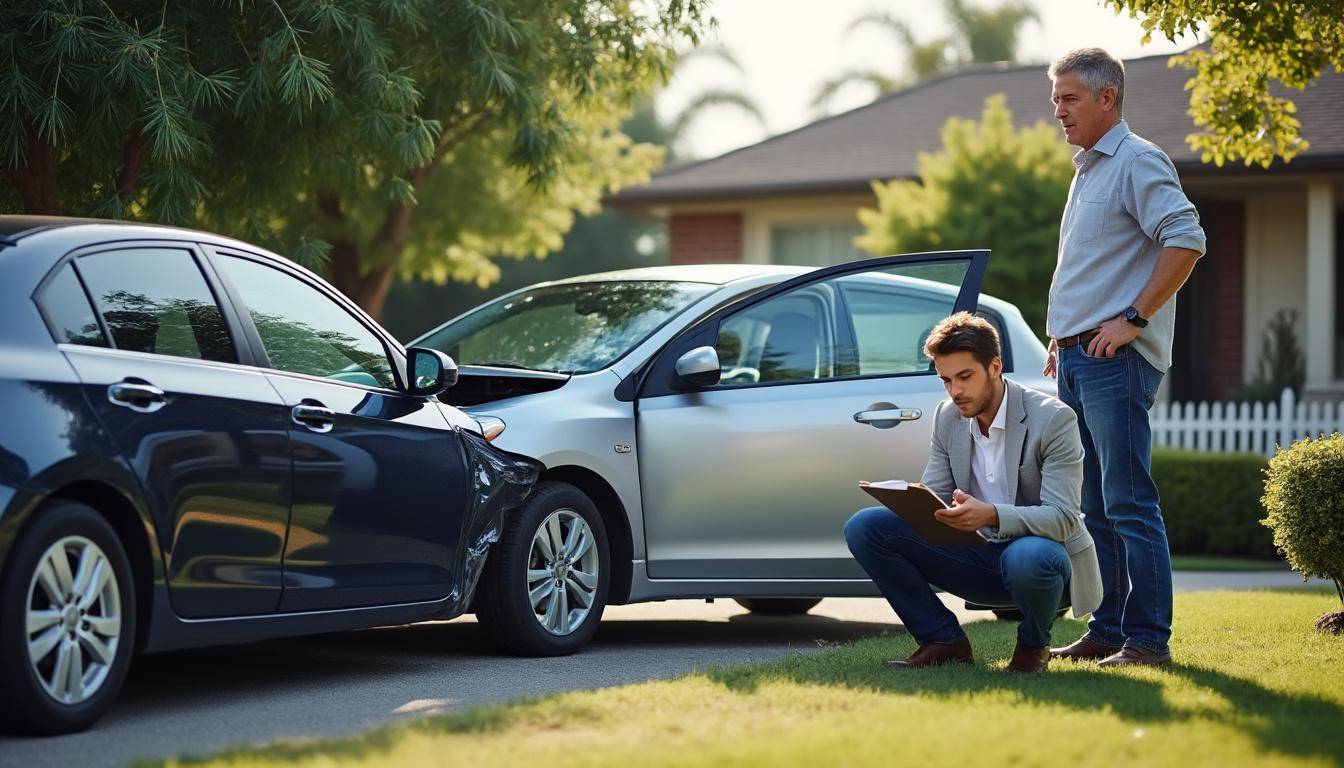Accidents in private settings—be it a quiet driveway or a busy shopping center parking lot—pose unique challenges for drivers and insurers alike. Amid the stress of property damage and possible injuries, the pressing question is often about insurance coverage. Most standard auto policies provide coverage regardless of location, yet the nuances of fault, liability, and property owner responsibilities complicate claims on private property. Understanding your rights and insurance intricacies is essential to navigate post-accident scenarios effectively and ensure you obtain the rightful compensation.
How Does Car Insurance Coverage Extend to Accidents on Private Property?
Car insurance policies, including those from providers like Allstate, Geico, and Progressive, generally do not differentiate between public roads and private property when it comes to liability and collision coverages. This means that incidents occurring in parking lots, private roads, and driveways are typically covered under your existing auto insurance, assuming you possess the relevant coverage types.
- Liability insurance protects against damages or injuries you cause to others, irrespective of the accident’s location.
- Collision insurance pays for damages to your own vehicle if you are at fault.
- Comprehensive insurance may protect against non-collision losses, such as vandalism or theft on private grounds.
Nevertheless, private property accidents often entail tangled liability claims, especially involving property owner negligence, which can influence how compensation responsibilities are divided.
Critical Factors Influencing Who Pays for Damages in Private Property Accidents
Determining fault is a cornerstone in insurance claims for private property mishaps. States vary in their negligence laws, with some adopting comparative negligence, assigning percentage fault to all parties, and others barring claims entirely if the claimant shares any fault.
- Negligent Driving: The driver who caused the collision may hold primary liability, even on private land.
- Property Owner’s Role: When inadequate maintenance, poor lighting, or unclear signage contributes, the property owner’s insurance might share or assume responsibility.
- Insurance Policy Boundaries: Policy limits dictate maximum payouts; excess damages might necessitate claims against another party’s insurance.
Property owner negligence can transform simple liability claims into more complex disputes, often requiring expert legal insight.
Procedural Steps to Take Following an Accident on Private Property
Swift, meticulous action after an accident can safeguard your rights and facilitate claim approval. Essential steps include:
- Contacting law enforcement: A police report helps establish official accident details, yet officers might not attend every private property incident.
- Documenting the scene: Take accurate photos of vehicle damage, road conditions, and any contributing hazards.
- Exchanging information: Obtain contact and insurance details from all parties involved.
- Gathering witness statements: Accounts from bystanders may clarify fault percentages.
- Seeking medical attention: Immediate evaluation is crucial, including documentation of possible trauma or injury.
- Notifying your insurer: Report the incident to companies like Liberty Mutual, Nationwide, and Travelers Insurance without delay to open a claim promptly.
Prompt and thorough communication with insurers helps minimize disputes and expedites resolution.
Successfully Filing an Insurance Claim after a Private Property Crash
Maximizing claim success demands comprehensive preparation and understanding. A structured approach consists of:
- Determining fault allocation: Collaborate with insurers to assign liability based on evidence and state laws.
- Assessing damages: Compile repair estimates, medical bills, and all damage-related documentation.
- Submitting claims: File accurate claims with both your insurer and potentially the property owner’s insurer if negligence is involved.
- Negotiating settlements: Engage insurance representatives carefully, and consider legal assistance from a car accident attorney to ensure equitable compensation.
- Finalizing payment: Accept settlement funds to cover losses and inform insurers if subsequent damages arise.
Engaging experienced legal counsel is advisable for complex cases or disputes, especially as insurers from companies like Farmers Insurance or Esurance might contest liability.
The Role of Property Owners and Insurers in Private Property Car Accidents
Property owners sometimes bear responsibility, particularly when their negligence contributed to accidents—such as failing to fix hazardous driving conditions. Insurance from commercial carriers or private policies might cover some damages, affecting how claims proceed.
- Document evidence suggesting property owner negligence, like unsafe road conditions or poor lighting.
- Consult a qualified attorney to determine if legal action against the owner is warranted; resources like this guide can help build a strong case.
- Coordinate between your auto insurer and property owner’s insurance to clarify coverage boundaries.
Robust legal support is critical when disputes over property owner liability emerge.
Frequently Asked Questions about Car Insurance and Private Property Accidents
- Does liability insurance cover accidents on private property?
Yes, liability coverage under policies from insurers such as State Farm and American Family Insurance typically applies to accidents regardless of location. - What if I only have liability insurance and get into a private property accident?
Your policy will cover damages to other vehicles or property, but you’ll pay out-of-pocket for damage to your own car unless you have collision or comprehensive coverage. - Is a police report necessary for claims on private property?
While helpful for documentation, police reports are not always mandatory, especially for minor incidents, but meticulous evidence collection is essential. - Can accident claims on private property raise my insurance premiums?
Yes, filing claims with any insurer, including Geico or Liberty Mutual, can affect your rates depending on fault, claims history, and insurer policies. - Am I able to sue a property owner responsible for an accident due to negligence?
Yes, if negligence contributed to the accident, you may have a legal claim. Consulting with a specialist car accident lawyer, such as those referenced on Court Injury, is recommended.
